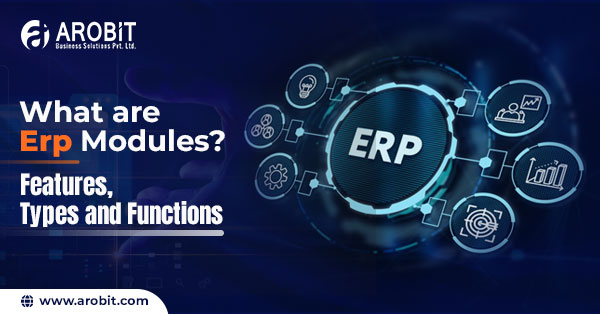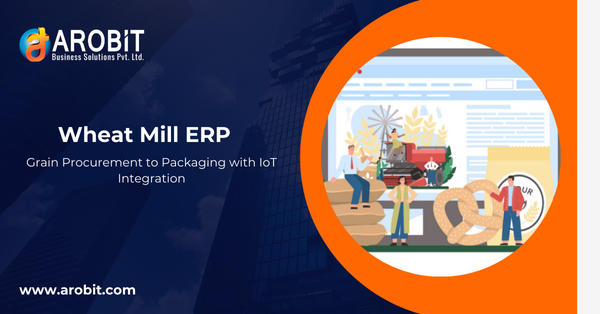Enterprise Resource Planning (ERP) systems have transformed business operations by seamlessly integrating diverse functions into a unified platform, enhancing performance and efficiency. The core of these systems consists of various ERP modules, each representing specialized components specifically designed to manage a specific business process within the firm. The article discusses some features, types, and functions of ERP modules for businessmen to gain an overview of which direction to take towards more enhanced operations.
Overview of ERP Modules
ERP modules split complex business processes into smaller, more manageable pieces to create a tailor-made set of specific needs from the ERP system. Modules for various business sections are available nowadays, such as finance( ERP Finance ) and manufacturing and CRM-related modules. The integration of the modules into a business ensures effortless flows of information across departments by increasing efficiency and making sound judgment decisions. These business modules in ERP systems help organizations tailor their operations to meet specific needs
Key Benefits of the ERP Modules
- Centralized Management of Data: The common database shared among all modules guarantees data consistency and accuracy.
- Automation of Processes: Many manual processes can be automated, thereby reducing the chances of errors and freeing time for the employee for strategic work instead.
- Scalability: The businesses can install only the modules they want and add more as the business grows.
- Improved Reporting: This, therefore, improves reporting in real-time as supported by data from all departments.
Common Types of ERP Modules
The most common ERP systems consist of several modules that focus on different functions within the business. Typical ERP modules, along with their key features, are summarized in the table below:
|
Module |
Key Features |
|
Finance and Accounting |
General ledger management, accounts payable/receivable, financial reporting |
|
Human Capital Management |
Employee records management, payroll processing, recruitment tracking |
|
Procurement |
Supplier management; PO processing (purchase module in ERP) and contract management. |
|
Manufacturing |
Production planning, scheduling, and quality control (manufacturing ERP modules) |
|
Inventory Management |
Stock tracking, inventory optimization, and fulfilment of orders |
|
Order Management |
Order processing, invoicing, sales forecasting |
|
Warehouse Management |
Inventory control, picking and packing operations, and shipping logistics. |
|
Customer Relationship Management (CRM) |
Contact management, lead tracking, customer support tools |
|
Supply Chain Management |
Logistics management, demand forecasting, supplier collaboration |
|
Project Management |
Project planning and tracking with resource allocation |
Detailed Features and Functions of Major ERP Modules
Finance and Accounting Module
- All finance-related activities of the organization lie in this module. This module automates some tasks like vendor invoicing and making their payments while giving actual views about the performance of these financial activities through reporting tools. Finance modules in ERP help a user by developing a budgetary plan and forecasting.
Human Capital Management (HCM) Module
- HCM modules help manage employee data throughout the lifecycle within an organization and streamline processes involved in recruitment, onboarding, performance reviews, and payroll.
Procurement Module
- Procurement modules ease the purchasing process by maintaining supplier relationships as well as automatic orders. This also comprises the purchase module within the ERP systems; thus, the business procures goods efficiently with minimal cost control.
Manufacturing Module
- This module is crucial for production-based companies as it helps plan a production schedule and manage resources more effectively. It shows information on manufacturing efficiency and provides tools to track product quality.
Inventory Management Module
- This module allows businesses to monitor their stocks in real-time. This will help the business prevent overstock and stockouts by optimizing the inventory based on forecasts.
Order Management Module
- The primary purpose of this module is streamlining the order-to-cash process, managing customer orders from receipt through fulfilment, and all invoicing.
Warehouse Management Module
- The warehousing module optimizes the performance in the warehouse by managing the movements of inventory within the warehouse. It improves efficiency in receiving goods and shipping orders.
Customer Relationship Management (CRM) Module
- CRM modules primarily focus on enhancing contact with customers by providing facilities for lead tracking and customer support query handling.
Supply Chain Management Module
- This module oversees the whole process of supply from acquisition to delivery of the product. It aids in ensuring material is available at the needed time while minimizing costs.
Project Management Module
- Designed for organizations that rely on project-based work, this module helps manage project timelines, budgets, and resources effectively.
Selecting the Most Appropriate ERP Modules for Your Business
When choosing ERP modules for your organization, consider the following:
- Business Needs: Identifying the functions that need to be automated and improved.
- Industry Requirements: Some industries have more regulatory or operational requirements that are met by more specific modules.
- Scalability: Choose modules that will grow with the business as needs change over time.
- Budget Concern: Compare the cost of every module against your budgetary constraints.
There are many ERP software development companies in India that offer customized solutions for these requirements. Many such companies provide complete support in the implementation of various business modules of ERP systems for optimizing business operations. The two best-known ERP software development companies in India are Arobit Business Solutions and Zoho Corporation, which offer customized solutions for ERP systems. Some of the ERP software developers in India also specialize in offering quality services for varied industrial needs.
Frequently Asked Questions (FAQs)
Q1. What are ERP modules?
A1. ERP modules are packaged software parts designed to manage certain business functions in an integrated system.
Q2. What are the advantages of modular ERP systems?
A2. Modular ERP systems enable businesses to tailor solutions to specific needs yet ensure the integration of data across the entire enterprise system.
Q3: Which are the top ERP software companies operating in India?
A3. Some of the top ERP software companies in India
are Arobit Business Solutions, SAP India, and Oracle NetSuite.
Q4. What are the Major ERP software vendors operating in India?
A4. The major vendors ERP software vendors include Arobit Business Solutions and Zoho Corporation, which offer custom-based ERP solutions for all business sizes.
Q5. What is the top ERP software in India?
A5. The best ERP software in India
depends on your business needs, however, one of the most complete options among the popular ones would include Microsoft Dynamics 365 Business Central and Oracle Fusion Cloud ERP
Conclusion
ERP modules are necessary parts that allow companies to standardize processes and increase efficiency in many different functions. Knowing the various features and functionalities of the modules—such as a purchase module in ERP for procurement or manufacturing ERP modules for production—helps an organization make the right choice about which solution will be the best fit.
As businesses evolve and expand, the appropriate combination of ERP modules will become extremely important in terms of building a competitive advantage in today's dynamic market landscape. To that end, using a suitable set of ERP modules that aligns with the specific needs of your business—including finance or manufacturing—increases operational efficiency and enhances growth during a competitive climate.
Take the Next Step in Your ERP Journey
Now that you understand ERP modules, discover how they help businesses improve efficiency in How ERP Modules Help Businesses Streamline Operations. If you're ready to choose the best ERP module for your business, check out our detailed ERP Modules Comparison: Finding the Best Fit for Your Business.








